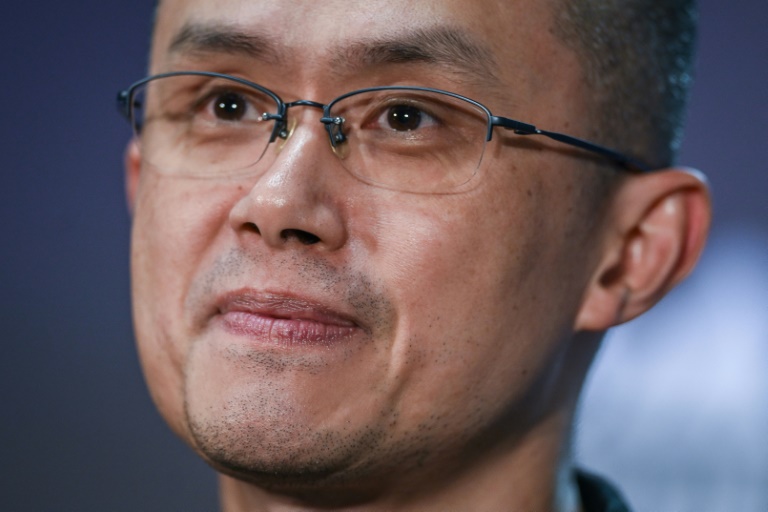Binance chief executive Changpeng Zhao pleaded guilty Tuesday to US money laundering charges, in a deal that will see the cryptocurrency exchange he founded pay over $4 billion in penalties.
“Binance became the world’s largest cryptocurrency exchange in part because of the crimes it committed –- now it is paying one of the largest corporate penalties in US history,” Attorney General Merrick Garland said in a statement.
Binance’s guilty plea is part of coordinated action including with the Treasury Department’s Financial Crimes Enforcement Network and Office of Foreign Assets Control (OFAC), the Department of Justice said.
Zhao pleaded guilty to failing to maintain an effective anti-money laundering program, the Department of Justice said, and he has resigned from his position of CEO.
Zhao, who lives abroad, entered his plea in person in the United States, added Garland.
Binance’s agreements with the Treasury Department’s agencies include a civil money penalty of $3.4 billion and a $968 million penalty involving OFAC. These mark the agencies’ largest settlements in history.
“Binance turned a blind eye to its legal obligations in the pursuit of profit,” Treasury Secretary Janet Yellen said in a statement.
“Its willful failures allowed money to flow to terrorists, cybercriminals and child abusers through its platform.”
She noted Binance “deliberately undermined its own sanctions monitoring controls,” allowing over 1.5 million virtual currency trades violating US sanctions, and failed to report suspicious transactions.
Yellen said the penalties, and a five-year monitorship imposed on Binance, mark a “milestone for the virtual currency industry.”
– Unprecedented –
The monitorship is unprecedented in the virtual currency space, a US Treasury official told journalists, speaking on condition of anonymity, comparing it to the oversight structure imposed on banks over a decade ago.
Moving forward, Binance must file suspicious activity reports required by law, on top of reviewing past transactions to report such activity to authorities, Garland said.
“This will advance our criminal investigations into malicious cyber activity and terrorism fundraising, including the use of cryptocurrency exchanges to support groups such as Hamas,” he added.
Binance was created in 2017 and cornered much of the crypto-trading market, turning Zhao into a billionaire.
Binance runs crypto exchanges and provides other services across the world, but it has taken a severe hit since crypto markets collapsed and regulators began probing the legality of its business.
Zhao — often seen as the arch-rival of disgraced FTX founder Sam Bankman-Fried — is expected to face sentencing at a later time.
With the deal, Zhao is barred from future involvement operating Binance’s business.
– ‘Misguided decisions’ –
In a statement, Binance conceded that it “made misguided decisions along the way” as it grew rapidly in an industry that was in the “early stages of regulation.”
“Today, Binance takes responsibility for this past chapter,” it said.
The company added that it did not initially have adequate compliance controls, saying that it has been working to restructure. Its former global head of regional markets, Richard Teng, will succeed Zhao as CEO.
In a separate social media announcement, Zhao said: “I made mistakes, and I must take responsibility.”
The latest deal does not include the company’s entanglements with the Securities and Exchange Commission, another regulator, which pressed a raft of charges against Binance in June, saying it allowed US residents to trade even when it was not registered in the country as a securities exchange.
The SEC also alleges the firm misused customer funds.
While Binance was founded in China, Zhao moved its operations to other locations internationally after a crackdown on the crypto sector by Beijing.
The volatile industry surged in 2021 with a range of complex products and celebrity endorsements propelling it to a valuation in excess of $3 trillion last year.
But a series of scandals, including the collapse of the FTX exchange and criminal charges for its executives, saw public confidence evaporate and investors pull their money out.

 Business4 months ago
Business4 months ago
 Business5 months ago
Business5 months ago
 Events3 months ago
Events3 months ago
 People4 months ago
People4 months ago
 Events6 months ago
Events6 months ago
















